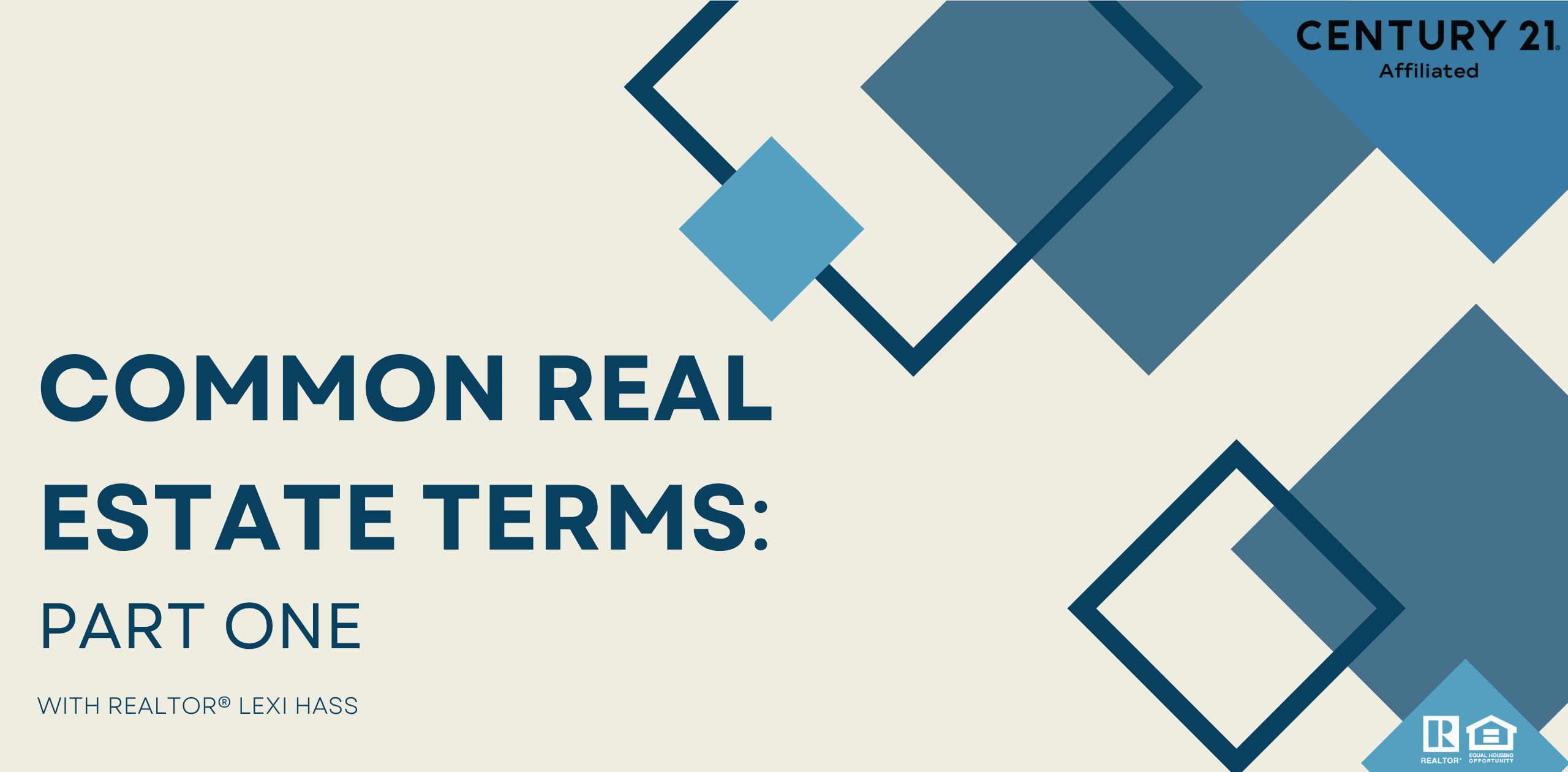Over the years as a real estate agent, I’ve learned that many people are unfamiliar with some of the terminology we use in the industry. Honestly, I wouldn’t know half of it either if I weren’t in this profession! Because these terms are part of our daily language, it’s easy to forget they might be unfamiliar to others.
To help make the process feel a little less overwhelming, I’ve broken down some commonly used real estate terms and clauses you may have heard—or will likely hear—throughout your real estate journey.
Appraisal
An appraisal is an estimate of a property’s value, conducted by a licensed third-party appraiser. This is typically ordered by the buyer’s lender (bank, credit union, or mortgage company). While an appraisal provides an informed opinion of value, it is not a guarantee. However, the lender relies heavily on this number to determine the loan amount they are willing to provide.
Appraisal Gap
An appraisal gap refers to a buyer’s agreement to cover, in cash, any difference between the appraised value and the agreed-upon purchase price. This clause became especially common during the competitive Covid-era housing market.
Comparative Market Analysis (CMA)
A CMA is a valuation tool used by real estate agents to help determine a home’s market value. We analyze recently sold properties in the area that are similar in size, style, and condition to the subject property, then make adjustments for differences. This is how most listing prices are established.
Contingency
A contingency is a condition that must be met before a real estate transaction can be finalized. Common contingencies include:
-
Inspection contingency: The buyer’s right to inspect the property.
-
Financing contingency: The buyer’s ability to obtain a mortgage.
-
Home sale contingency: The buyer must sell their current home before closing on the new one.
Earnest Money Deposit (EMD)
An EMD is a sum of money the buyer submits with their offer to demonstrate they are serious about purchasing the property. If the buyer backs out of the deal for any reason not covered by a contingency, the seller typically retains this deposit. If the transaction proceeds to closing, the EMD is applied to the buyer’s down payment or closing costs. If a contingency is not met and the buyer withdraws, the deposit is usually refunded.
Escalation Clause
An escalation clause allows a buyer to offer a base purchase price, but also includes a willingness to automatically increase that offer if a competing bid comes in—up to a specified maximum amount. This is commonly used in multiple-offer situations.
Inspection
Inspections are often confused with appraisals, but they serve very different purposes. An inspection is optional but highly recommended. It involves hiring a professional to assess the home’s condition—including the structure, roof, attic, HVAC, plumbing, electrical, and appliances. Buyers can also opt for additional inspections, such as mold, radon, well, septic, or water quality tests. In some areas, sellers may be required to complete well and septic inspections.
Inspection Period
The inspection period is the timeframe agreed upon in the purchase agreement during which the buyer can complete all inspections. For example, in the Greater Lansing Association of REALTORS® Purchase Agreement, the buyer has three additional days after the inspection period ends to:
-
Remove the inspection contingency
-
Request repairs or a price adjustment
-
Cancel the contract
If a buyer requests changes, the seller has three days to respond. These timelines can vary by region or contract, so it’s essential to understand your specific agreement.
These are just a few of the many terms you may encounter throughout a real estate transaction. I’ll be covering more in future posts, so stay tuned! In the meantime, if you have any questions, don’t hesitate to reach out using the contact information on my homepage or via the “Contact Me” section under the “About Me” tab.
Happy buying and selling! 😊


 Facebook
Facebook
 X
X
 Pinterest
Pinterest
 Copy Link
Copy Link


